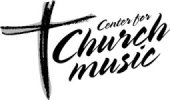Center For Church Music, Songs & Hymns

Browse Hymns:
Browse by:
We Invite You To Sing
To sing with us, 1) Click on the music thumbnail icon to view the sheet music (you don't have to read music!), and 2) Engage the audio file by clicking on the Real audio or Mp3 file.
Find Songs And Hymns
Martin Luther

- Birth: November 10, 1483, Eisleben, Germany
- Death: February 18, 1546, Eisleben, Germany
Martin Luther was born into a musical family. As a boy, he joined a boys' choir and became proficient with the flute. Later, he became an Augustinian monk and struggled to meet the demands of a holy God. It is said that "he fasted until his cheeks caved in." He confessed his sins for hours at a time. But he soon began to see that man could not, even at his best, satisfy the almighty God.
Through his study of the Bible, he found that a person can only be saved through the blood of Jesus Christ; not through the purchase of indulgences, which were widely sold in the Catholic Church of his day. For purposes of discussion, he wrote a paper with ninety-five points and tacked it to the church door at Wittenberg. Those theses started the Protestant Reformation.
Luther became known in particular for three things: the doctrine of salvation by faith alone, the belief that Scripture should be translated into the people's language, and the birth of congregational singing. He felt that music was of God, not of man. And he was determined to restore congregational singing in the German language to the Church.
So strong were his beliefs about music and worship that he wrote these fiery words: "Next to the word of God, the noble art of music is the greatest treasure in the world. It controls our hearts, minds and spirits. A person who does not regard music as a marvelous creation of God does not deserve to be called a human being; he should be permitted to hear nothing but the braying of asses and the grunting of hogs!"
His passionate beliefs led Luther to write both words and music for several hymns, including "A Mighty Fortress is Our God." Luther's first hymnal was published in 1524. It contained eight hymns, four written by himself. Later hymnals were also published for congregational use. He urged people to use the hymns at home and encouraged parochial schools to teach them to their students.
Working with skilled musicians, Luther also created new music for church choirs, organ, and other instruments during his life. And after his death in 1546, the first line of "A Mighty Fortress Is Our God" was inscribed on his tomb.
Page numbers in Trinity Hymnal (1990) and The Worshiping Church (1990)
| Title | Trinity | Worshiping |
|---|---|---|
| A Mighty Fortress Is Our God | 92 | 43 |
| All Praise to Thee, Eternal Lord | 219 | |
| Christ Jesus Lay in Death's Strong Bands | 279 | |
| From Heaven High I Come to You | 220 | |
| From Depths of Woe I Raise to Thee | 554 | |
| Savior of the Nations, Come | 138 |

